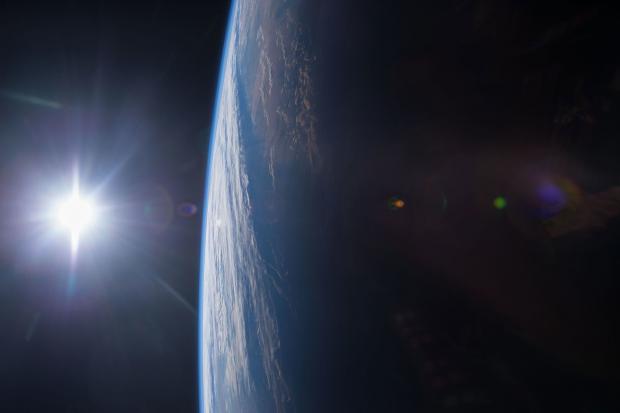
Breaking News
 Dr. Ron Paul interview with Meditation Magazine
Dr. Ron Paul interview with Meditation Magazine
 Tuesday War Room LIVE: Tune In For LIVE Election Day Coverage, As New York City Poised...
Tuesday War Room LIVE: Tune In For LIVE Election Day Coverage, As New York City Poised...
 Slowing climate change by using aerosols to block sunlight? Maybe not such a good idea
Slowing climate change by using aerosols to block sunlight? Maybe not such a good idea
 Las Vegas Cybertruck bomber's classified confession: Mystery as police suppress key details...
Las Vegas Cybertruck bomber's classified confession: Mystery as police suppress key details...
Top Tech News
 Japan just injected artificial blood into a human. No blood type needed. No refrigeration.
Japan just injected artificial blood into a human. No blood type needed. No refrigeration.
 The 6 Best LLM Tools To Run Models Locally
The 6 Best LLM Tools To Run Models Locally
 Testing My First Sodium-Ion Solar Battery
Testing My First Sodium-Ion Solar Battery
 A man once paralyzed from the waist down now stands on his own, not with machines or wires,...
A man once paralyzed from the waist down now stands on his own, not with machines or wires,...
 Review: Thumb-sized thermal camera turns your phone into a smart tool
Review: Thumb-sized thermal camera turns your phone into a smart tool
 Army To Bring Nuclear Microreactors To Its Bases By 2028
Army To Bring Nuclear Microreactors To Its Bases By 2028
 Nissan Says It's On Track For Solid-State Batteries That Double EV Range By 2028
Nissan Says It's On Track For Solid-State Batteries That Double EV Range By 2028
 Carbon based computers that run on iron
Carbon based computers that run on iron
 Russia flies strategic cruise missile propelled by a nuclear engine
Russia flies strategic cruise missile propelled by a nuclear engine
 100% Free AC & Heat from SOLAR! Airspool Mini Split AC from Santan Solar | Unboxing & Install
100% Free AC & Heat from SOLAR! Airspool Mini Split AC from Santan Solar | Unboxing & Install
Slowing climate change by using aerosols to block sunlight? Maybe not such a good idea

Could injecting billions of kilograms of sunlight-dimming aerosols into the atmosphere save the planet from industrial climate destruction? Or is that just Joker-level insanity? A new Columbia Climate School report definitely suggests that caution is warranted.
Stratospheric aerosol injection (SAI) is essentially a "non-nuclear winter" in which an intentionally deployed atmospheric shroud would block sunlight from heating the earth, allowing industrial pollution to continue as usual. But why would anyone consider such a risky, dramatic climate plan at all, especially one previously dismissed as science fictional?
?
Because, as a previous report by the Inter-Governmental Panel on Climate Change states, industrial climate change is causing wide, "rapid changes in the atmosphere, ocean, cryosphere [ice zones], and biosphere" that are altering "weather and climate extremes in every region across the globe." The result is "adverse impacts and related losses and damages to nature and people."
But what about all our recycling, car-pooling, biking, hiking, and gardening? Aren't we in the end-game of stopping an eco-killing Thanos from snapping his fingers and our snapping our biosphere's neck?
Not even close. Greenhouse gas emissions aren't slowing – they're actually increasing. As the International Energy Agency reported in 2024, carbon emissions from the energy sector reached a new record as total "energy-related CO2?emissions increased by 0.8% ... hitting an all-time high of 37.8 Gt CO2."
And according to the Royal Meteorological Society, in 2024, for the first time, the world exceeded the 1.5 °C threshold for an entire year (in fact, it was 1.6 °C above pre-industrial levels). Keeping global temperate to no more than a 2 °C increase above pre-industrial levels, according to the Paris Agreement, stands between life as we know it and a cascading climate system failure that humans won't be able to stop.
Perhaps most unjust is the fact that populations who've done the least to cause climate chaos face some of the greatest damage from it, as when rising sea levels swallowed eight Micronesian islands in 2017, with Tuval, Kiribati, the Maldives and the Marshall Islands facing "stronger storms, freshwater shortages, and damaged infrastructure" before potentially disappearing underwater.



